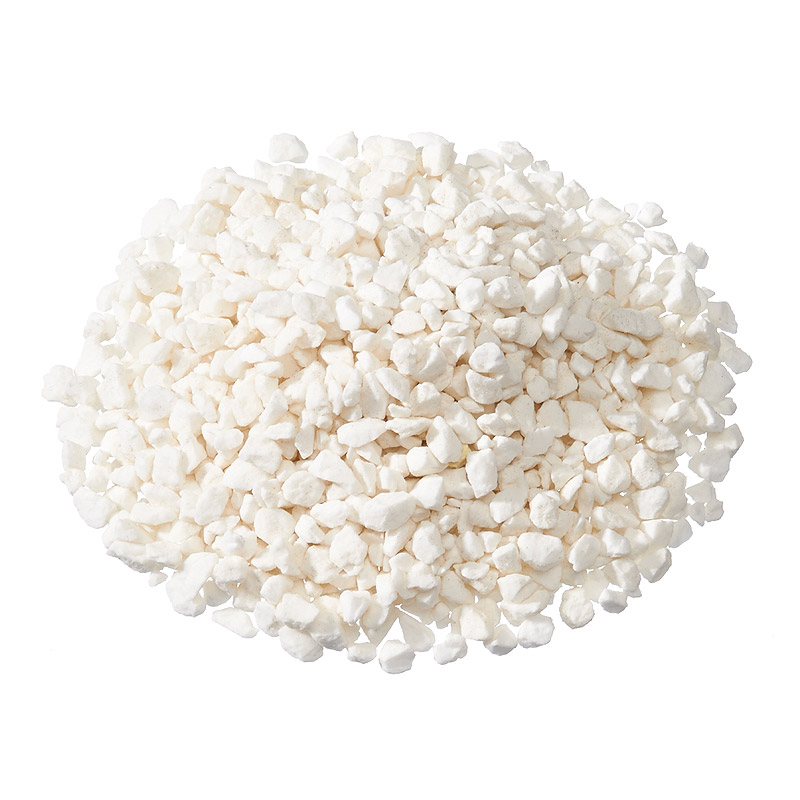Introduction to Boron in Agriculture
Yet, for plants to thrive, they require micronutrients which act as catalysts in the intricate chemistry of life. Of these micronutrients, none is more significant for plant growth and health than boron. However, outside of certain horticultural plots and glasshouse crops, boron is still largely overlooked in standard fertilisation programs and practices. This oversight, of course, results in crop deficiencies with significant impacts on yield and quality.
It helps to keep everything in their plants running smoothly, from storing energy to making flowers and fruits. Without it, plants would be stunted in both size and fertility. Boron is central to the integrity of plant cells. It helps link together the sugar molecules in cell-wall gums, which in turn helps the plant grow straighter and stronger, and allows organs to grow properly.
Boron also helps with the reproduction processes, assisting with pollen germination and the growth of pollen tubes that bring male pollen into the female organs of a flower or plant. Pollen tubes transport genetic material from the male to the female part of the plant, allowing it to become fertilised and, if that seed is edible, typically resulting in more delicious fruit. Without boron, plants would be much smaller, and often infertile.
Organic boron fertilizer contributes this micronutrient in a form that makes it accessible for plant utilisation, rather than merely being a source for its added content. Similar to all organic fertilizers, organic sources of boron such as borax, boric acid and other naturally occurring boron-containing minerals create a slow-release mechanism that provides boron in a rhythmic fashion, avoiding sudden levels of boron that can be toxic to plants and instead providing a healthier, more balanced environment for growth.
The use of organic boron fertilizer by farmers and gardeners hopes to increase the resilience of crops, strengthen the structures of the plants and enhance the reproductive success to produce higher yields and better quality products. These sections will explain what an organic boron fertilizer is compared to synthetic fertilizers, and the specific benefits to agricultural processes.
What is Organic Boron Fertilizer?
Organic boron fertilizer is a niche quantity of plant nutrients that supply boron as an organic micronutrient, manufactured from organic or inorganic naturalsources that contain boron such as the minerals borax and colemanite or bound in the form of organicboron-containing substances as a chelate. These plant nutrients are readily available and easy for the plant to absorb.
Consumers benefit from organic boron fertilizers as well, as they contain and deliver boron in numerous organic forms instead of synthetic boron, which can often deliver the element in a highly soluble form where the nutrient is quickly taken up by a plant that can soon become toxic. In contrast, the organic forms are released more slowly and throughout a longer period of time, thus helping to maintain the optimal nutrient balance in the soil and avoid the risk of boron toxicity.
Some organic boron fertilizers contain boron based on naturally occurring non-synthetic or mineral deposits of boron compounds, for example borax, extracted from natural mineral deposits created in seasonal lakes. Borax can be considered to contain a completely naturally occurring and therefore ‘organic’ form of boron. Other sources of boron used in organic fertilisation include organic chelates produced with plants and animal ingredients where the boron compound is considered naturally occurring. One example is boric acid, which when produced in its natural state can be used for organic fertilisation in accordance with organic standards.
This is a critical distinction since, clearly, it’s more in line with sustainable agriculture practices ensuring that, besides being available to the plants, boron is also available to the soil and the environment in which it’s grown. The use of organic boron fertilizer allows people, be they farmers or gardeners, to give their crops a continuous supply of boron, essentially ‘feeding the plants’ without all the downsides to the environment that synthetic chemical boron applications inevitably incur.

Benefits of Using Organic Boron Fertilizer
Organic boron fertilizer provides numerous advantages that improve the efficiency of nutrient uptake and utilisation in plants, promoting plant health and reproductive success. This is how this important micronutrient benefits those processes:
Boron serves as an essential component for the synthesis and reinforcement of the fabrics that make up plant tissues. Through its integration within the structure of the plant cell wall, organic boron fertilizer aids in the proper stabilisation of the cellular matrix within plants to secure the structural integrity of plant tissues. This allows for an increase in rigidity to withstand the physical stresses of wind and rain.
Screenshot from Amy Ivy’s Youtube video Fertilizers. Let’s Talk About Them!If boron deficiency impacts reproduction in plants, then it stands to reason that by providing a good dose of the plant nutrient to developing flowers and pollen grains, the flowering and fruiting process can be boosted. That’s exactly what growers and farmers are finding. Adding a dosage of organic boron to soils significantly increases flowering and fruiting processes. Which means that gardeners and farmers can create more crops and produce crops of higher quality.
Second, it helps to optimise the translocation of phosphorus and nitrogen; the way these critical nutrients are utilised in the plants is also regulated by boron. Hence, the utilisation of these essential nutrients is improved by the addition of boron. Third, numerous studies have shown that the translocation of other nutrients in the plant body, especially the phloem transport, is dominated by boron. The improved transport of nutrients and cold hardiness contributes to improved overall plant growth and development, and boron fertilisation can play an important role in integrated nutrient management.
These benefits suggest that boron is a key mineral for the reproductive development and ecological efficiency of plants, not just for their vegetative growth. In other words, if you want thriving, resilient, bug-resistant, nutrient-dense, oil-rich plants – the ones that form the backbone of a sustainable ecology – then you need healthy, happy plants that thrive on as little other input as possible. And that means feeding your garden with organic boron fertilizer.
Application Techniques for Organic Boron Fertilizer
Appropriate application of organic boron fertilizer is crucial to get the most benefits from this vital nutrient, while maintaining plant health and the environment at large. Here are some recommended best practices and considerations that may be helpful:
Boron requirements vary with phases of development and metabolic activity of a crop, so leafy vegetables and root crops usually demand more than, for example, cereals. The method and rate of application should be matched to crop type.
Granular organic boron fertilizer can be applied to the soil via a broadcast (pre-planting) or side-dressing (post planting) application where plants are established. For smaller, precision applications, fertigation (fertilizer applied with irrigation water) and foliar sprays can provide boron to the parts of the plant where it is most needed.
Timing of boron application also has an impact. Boron best contributes to plant function if it is applied at specific times, for example, before flowering and in early fruit set, just when plants need it most, to boost flower formation and fruit set, thereby increasing crop yield.
Experts agonise over getting the right rate. Too much can lead to boron toxicity. Soil tests and plant tissue analyses can be wonderful tools to help you know ahead of time whether or not your plants need boron. But because the margin between deficiency and toxicity is so slim, it’s always best to apply low rates anyway – often in the range of a few pounds per acre.
If these application techniques are followed, the use of the organic boron fertilizer will be safe and functional. The plants will be healthier and increase their yield at the same time.

The Environmental Impact of Using Organic Boron Fertilizer
Organic fertilizers containing boron is very advantageous in agriculture and gardening producing low environmental impact. This should give extra merits to the said practices as it shows it concern to the environment. Let’s delve into this further and see how organic fertilizers affect the soils considering its impact to the biosphere.
Although organic boron fertilizers contain boron like the synthetic ones, they are different because they are obtained from renewable and natural resources without the addition of any toxic additives. Such fertilizers are environmentally friendly and contribute to maintaining the long-term fertility of soil. These fertilizers have better soil aggregation and water holding capacity than other fertilizers. If they are used for any crops regularly, they can help to reduce watering frequency which is very important. Also, this reduces the risk of soil erosion to a great extent.
Furthermore, these organic compounds promote soil-based biodiversity by incentivising the proliferation of beneficial microorganisms, which are crucial for nutrient cycling, and can help to build a more resilient soil biota with an innate capability to resist pests and diseases.
That’s a valuable contribution to soil fertility, as organic matter is an essential component of fertile soil. It serves as a nutrient buffer, releasing nutrients slowly over time as plants need them; in other words, it helps to ensure nutrient use efficiency and minimize waste. Plus, the organic matter feeds a wealth of microbes, increasing biodiversity in the soil.
Healthy, biologically diverse soil will eventually decompose pollution, and will also help make vegetation more resistant to extremes of temperature and weather, thus creating a virtuous cycle, in which healthier plants lead to healthier soil, which in turn leads to the growth of even healthier plants.
By integrating the natural boron from organic boron fertilizer into these practices, farmers and gardeners can better ensure a healthy and vibrant garden, and also, importantly, improve environmental health, increasing the sustainability of their agricultural and gardening practices while leaving the land in a healthier state for future generations.
Conclusion
Use of organic boron fertilizer in farming and gardening activities is not merely about improving vegetation growth and raising the productivity level of agricultural produce; it serves as a means to lead environmental conservation and development in the right direction with green techniques by and for safeguarding ecological health.
When they choose organic boron fertilizer, farmers and gardeners – and everyone else who benefits from their work – honor a vital step in the cycle of sustainable plant health and biodiversity – sustainability from the soil up. Future food is sustainable food. It begins with micro. This article was funded by Impact ProteinTM through a grant from the Campbell Soup Company Foundation to Aeon.
A long way back at the start of this I suggested that farmers and gardeners might want to think about the medium- to long-term benefits of using organic boron fertilizer. OK, I will look again, then. I will think about those long-term benefits to crops and planet. I will make some changes to the way I grow things, in a way that’s proactive, thinking of the future. Healthy crops. Healthy planet. This is how I will pass on a green plant legacy, fit for people centuries hence.
Here are some references related to organic boron fertilizer :
- National Center for Biotechnology Information (NCBI): “Effects of Boron on Structure and Growth Performance of Plants” – A scientific article discussing the physiological and developmental impacts of boron on plants.
- Garden Organic: “Using Boron in Organic Gardening” – This page provides insights into how organic boron fertilizers can be used safely and effectively in organic gardening practices.
- Rodale’s Organic Life: “How to Use Boron for Better Growth in Organic Crops” – An article offering practical advice on the application of boron fertilizers in organic agriculture to enhance crop yield and quality.
- The Organic Farmer’s Business Handbook: “Micronutrients in Organic Farming” – A section within this handbook discusses the importance of micronutrients, including boron, and their organic sources.







